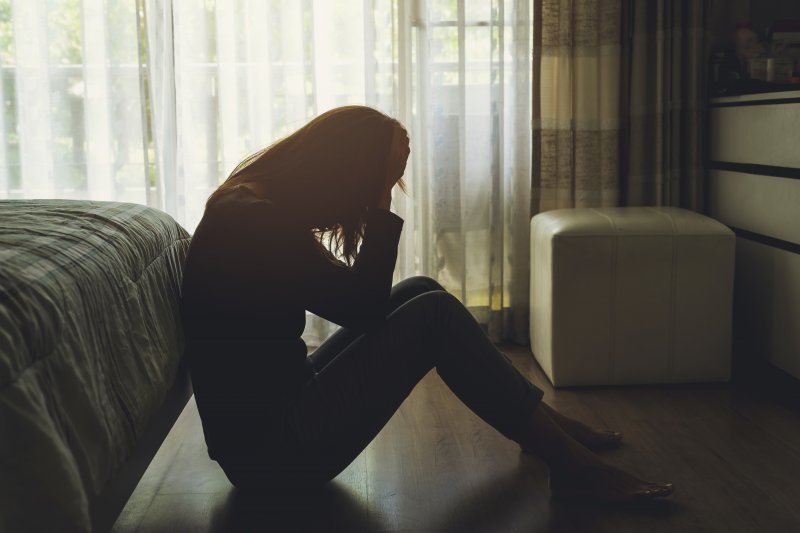Can Your Sleep Apnea Cause Depression?
June 14, 2023

If you’ve lived with it long, you know sleep apnea reduces quality of life. That’s only natural – the condition interferes with your much-needed sleep! Still, you may think it only affects you physically. In truth, though, untreated sleep apnea can cause depression. It thus has the power to impact your emotions. Fortunately, your Owings Mills dentist knows how to manage this problem. Here’s a summary of sleep apnea, how it causes depression, and when to get help from a dental provider.
Remind Me: What’s Sleep Apnea?
Perhaps you don’t know much about sleep apnea. Well, don’t worry; it isn’t hard to understand. The sleep disorder is a fairly simple one.
In essence, sleep apnea occurs when breathing repeatedly stops and starts when you sleep. It usually stems from your airway being partially or fully blocked. Once that happens, your brain must wake you to clear the blockage and resume breathing. These awakenings then result in shallow, intermittent sleep.
The usual symptoms of sleep apnea are:
- Loud, chronic snoring
- Waking abruptly and feeling short of breath
- Morning headaches
- Frequent daytime fatigue
- Attention problems
Sleep Apnea Can Cause Depression
In reality, sleep apnea affects more than just your physical body. It can result in major depression if left unchecked for too long.
This conclusion is backed by the latest science. For example, a 2015 study from the journal SLEEP found that sleep apnea is strongly associated with depression. Similarly, research published in the Journal of Clinical Sleep Medicine notes that sleep apnea treatment greatly reduces depressive symptoms.
Currently, the reasons for the sleep apnea-depression link aren’t well understood. Some speculate that a reduction in sleep quality alters mood-related brain patterns. Others, meanwhile, suggest feelings of tiredness or sluggishness contribute to pre-existing depression.
When to Get Help
As a way to relieve depression, getting help for sleep apnea is a good idea. Luckily, there are several ways to go about that process. The most common ones are:
- See Your Local Dentist – Many dentists are well-versed in treating sleep apnea. They might, for instance, provide you with an oral appliance that opens your airway. You could also consult a dental team about getting a CPAP machine.
- Avoid Alcohol – As it turns out, drinking can make both depression and sleep apnea worse.
- Exercise Regularly – Regular exercise can alleviate depression and help with weight loss. The latter effect, in turn, eases sleep apnea caused by obesity.
Ultimately, sleep apnea can cause depression if you aren’t careful enough. With that said, see your dentist for a better night’s rest and a happier mood when waking up!
About the Practice
Dolfield Dental is based in Owings Mills, MD. Led by Drs. Jacob and Cynthia Miller, our practice strives to give each patient top-quality dentistry. To that end, we offer preventive, cosmetic, and restorative services tailored to your unique smile. Our team also provides emergency dentistry, as well as therapies for TMJ disorder and sleep apnea. For more information or to book a visit, you can reach us on our website or by phone at (410)-902-4110.
No Comments
No comments yet.
RSS feed for comments on this post.
Sorry, the comment form is closed at this time.
